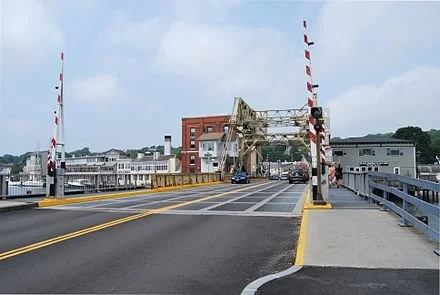Don Pesci: Conn.’s temporary gasoline-tax cut and trying to repeal economic common sense
Major roads of Connecticut
VERNON, Conn.
The default position of Connecticut’s majority Democrats on the matter of getting and spending has not changed within the past three decades: Tax cuts, infrequently imposed, should be temporary and bravely endured, while tax increases, deployed for the most part to satisfy imperious state-employee-union demands, should be permanent.
The recent temporary suspension of Connecticut’s 25-cent-a-gallon excise gasoline tax conforms to the default position of Democrats who have controlled Connecticut’s General Assembly for the last 30 years: The tax is to be suspended – operative word – “temporarily” from April to July 1.
Connecticut Democrats, it should seem obvious, are reading from a national Democratic script.
The increase in the price of gasoline, they say, is due chiefly to the Russian war of aggression in Ukraine and the greedy oil barons.
The debate in the General Assembly on reducing Connecticut’s gasoline tax centered upon whether the reduction should be temporary or permanent.
“Rep. Sean Scanlon, a Guilford Democrat who co-chairs the tax-writing committee,” one newspaper noted, “said many constituents have been hurting from the rising prices at the pump, which was recently an average of $4.32 a gallon.
“Our constituents did not start a war in Ukraine,’' Scanlon argued. “Our constituents did not contribute to the global supply chain. ... This is a great first step that we can make to give them some affordability, some relief. ... At least we’re doing something.”
The newspaper correctly noted, “The tax cuts are possible partly because the state has large budget surpluses in two separate funds due to increased federal stimulus money and capital gains taxes from Wall Street increases, paid largely by millionaires and billionaires in Fairfield County.”
In the state Senate chamber, also dominated by Democrats, Will Haskell, of Westport, rose to the occasion. Haskell argued that the gasoline-tax cut should not be permanent because providing permanent relief would deliver a “debilitating blow’' to the state’s plans to spend millions of dollars to fix roads and bridges. The paper quoted Haskell: “Gas prices are high, but not because of taxes. It’s because of [Russian dictator Vladimir] Putin.”
The federal government – which prints money, borrows money and acquires money through excessive taxation – is flush with funds now being distributed by the Biden administration to various political receptacles, some say for political purposes. In many instances, states are using the funds to offset business slowdowns caused by, some argue, imprudent decisions made by governors and federal officials that have produced a worker shortage. Common sense tells us that if you provide a living salary to workers not to work, they will not work.
High business taxes, an increase in the supply of money flowing from private pockets to the public purse, and labor shortages have produced too few goods, resulting in inflation – too many dollars chasing too few goods.
The high price of goods and services may also be attributed to a continuing effort by progressives in the United States to repeal a central law of a free-market economy, the law of supply and demand, which holds that when demand is a constant and supply is diminished, prices on all goods and services rise. The rise in prices has less to do with the greed of billionaire CEOs than a Darwinian survival-of-the fittest-impulse in over-regulated markets centrally directed by Washington politicians. Large business can survive a large regulator drag on profits. Higher taxes and an increasing regulatory burden swamp smaller businesses and, of course, make it much easier for the larger fish to swallow the minnows.
The empty shelves in Russian stores during the good old days of the Soviet Union were attributed by underpaid “workers of the world” in Russia to central planning. In the so-called “captive nations,” the necklace of states now threatened militarily by Vladimir Putin, workers used to joke among each other, “We pretend to work, and they pretend to pay us.”
The Democratic Party program runs against the grain of good sense. Every worker in the United States knows that personal debt should be discharged by responsible debt holders willing to cut spending and pay down the debt.
Temporary reductions in taxes are insufficient to pay down a debt in Connecticut that has swelled over the years to about $57 billion. And given past performance, no one in the state can be certain that increased taxes will be put to such purposes by an administrative apparatus, growing daily, that had in the past raided various Connecticut lockboxes to pay for current expenses.
The solution to Connecticut’s most pressing economic problems is disarmingly simple: Enrich the state’s creative middle class by cutting taxes and regulations, pay down debt, and work hard to dissolve the entangling alliances between a tax-thirsty government and an even more tax-thirsty conglomeration of various state employee unions.
Don Pesci is a Vernon-based columnist.
The Mystic River Bascule Bridge, built in 1922, carries US 1 over the Mystic River in Connecticut. The famous span connects Groton with the Stonington.

